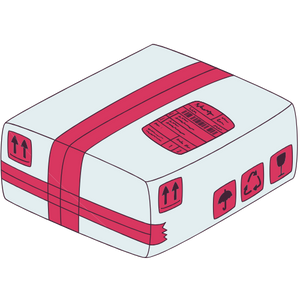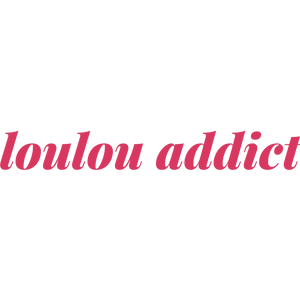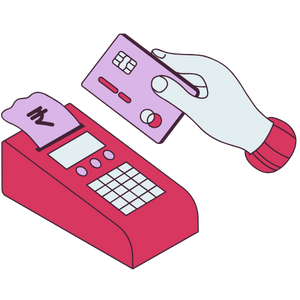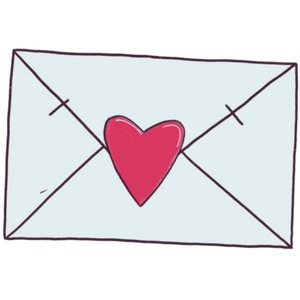Diet & Periods

When you know that eating well has a direct influence on the menstrual cycle, it seemed essential to us at Loulou to look into this question. We already know that eating disorders and certain eating behaviours (bulimia, anorexia) have an impact on your period, especially its regularity.
But what about diet in general? Which foods should you prioritise during your period? And on the contrary, which foods are best avoided? Is it necessary to follow a specific diet?
Our hormones are working flat out during our period. So it’s no surprise we experience certain cravings. Menstruation is a very specific phase of the menstrual and hormonal cycle. Between your cravings and your pain, putting together the right plate becomes important. To avoid bloating, fatigue and pain, certain habits are worth adopting.
Today we’re zooming in on the interesting relationship between food and periods. Let’s debunk some myths together. Let’s stop feeling guilty about a square of chocolate and build a healthy, delicious plate so we can experience calmer, more comfortable periods!



During your period, what do we really need?
Before going any further, let’s do a quick health check. During your period, certain issues can crop up: headaches, acne, bloating, water retention, sluggish digestion, lower abdominal pain or intense fatigue. To some extent, your diet can reduce these symptoms and help you get through these few difficult days more comfortably.
Your body will be happy to receive foods rich in specific nutrients it lacks at this point in your cycle. Foods high in certain vitamins to fight fatigue, or rich in iron to make up for losses, for example.
Eating to make up for a deficiency, yes, but not only that. Let’s never forget that food is first and foremost a source of pleasure and life. So listen to yourself, adapt, and take care of yourself by preparing delicious homemade meals.
We avoid…
Saturated fats are not ideal during your period. Foods that are too rich, too fatty or too sugary are not recommended during menstruation. Highly processed, salty and sugary meals or snacks should be avoided.
Craving something sweet? It’s always better to prepare your own snack or homemade cakes/cookies. They’re tastier and much healthier than store‑bought options. Go for recipes based on quark, applesauce or rolled oats (easy to find on social media). You’ll enjoy yourself without feeling guilty.
Super‑fatty foods (fast food, deli meats, fries) should be avoided at this point in your cycle, as they increase the risk of acne flare‑ups.
Alcohol should also be avoided. Alcohol naturally dehydrates you and tends to deplete magnesium—exactly when your body needs it most.
Carbonated drinks are not recommended either, as they tend to increase bloating.
We prefer…
At the top of the list—and this is good news—is chocolate. As well as being rich in magnesium (great for migraines and cramps), chocolate, especially dark chocolate, is the ultimate feel-good food.
By boosting serotonin production, dark chocolate puts us in a better mood. We feel less irritable and moody. You can top up your magnesium intake with tuna, spinach or nuts. All excellent foods with multiple benefits.
Instead of refined sugars, go for complex, slow-release carbs that give you energy and a real feeling of fullness. Lentils, wholemeal bread, seeds, chickpea hummus or oat-based biscuits—there’s plenty to choose from.
Also make sure you get enough omega-3 (found in certain fish). Omega-3 supports healthy digestion and helps your body produce anti-inflammatory molecules that can ease uterine pain.
We cut back on…
Stopping everything overnight is likely to cause frustration and tension. It’s better to cut back and limit certain foods.
We reduce the number of cups of coffee for those who are a bit too addicted. The favorite stimulant of many French women should be consumed in small quantities to avoid additional tension and stress. We also cut back on dairy products (cheese and butter). Without stopping them completely, it's good to limit their intake for a few days. Dairy products lead to the production of prostaglandins (which tend to increase uterine contractions).
Try to cut back on red meat, which is fatty and doesn’t help with period problems. Choose fish instead, which is rich in healthy fats and omega-3s.
And what about hydration?
During your period, don’t forget to stay well hydrated. Water of course, but also herbal teas—hot or iced, depending on the season and your mood. Good hydration actually helps combat water retention.
Our current Louloucup selection:
🩷 Love yourself and enjoy your food
In short: starter, main course, dessert, don’t skip meals and take care of yourself. It’s essential to have a balanced diet that you enjoy during your period. A diet that’s comforting without being too fatty or too sugary is absolutely possible. You just need to find healthy alternatives to the ultra-processed supermarket products.
When faced with bloating and swollen bellies, don’t panic. It’s actually completely normal to gain a bit of weight during your period. The phenomenon is temporary. During menstruation, digestion slows down, water is retained, and the belly swells. Everything goes back to normal once your period is over.
In summary, it’s important to choose foods adapted to your symptoms. Focus on a diet rich in fiber, vitamin C, complex carbohydrates, iron, omega-3 and calcium.
 Did you like this article? Pin it!
Did you like this article? Pin it!


































